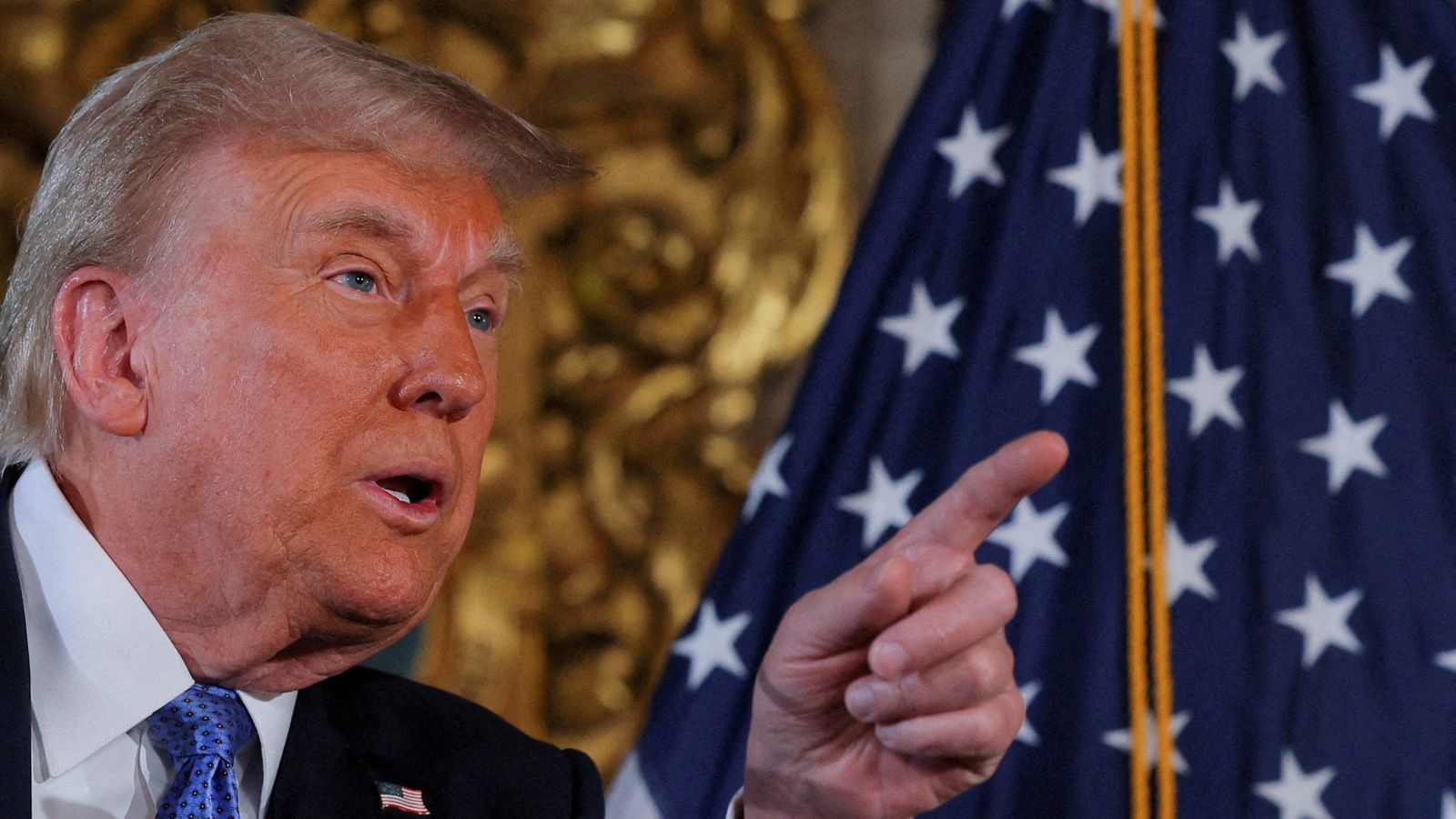US politicians have rejected a spending bill endorsed by president-elect Donald Trump – leaving Congress with no clear plan to avert a fast-approaching government shutdown.
On Wednesday, Mr Trump dismissed a bipartisan compromise, which Republicans and Democrats had reached to prevent a shutdown just days before the Christmas winter break.
Instead, he urged Republicans in the House of Representatives to back a new deal which included a three-month extension of government funding and a two-year suspension of the debt limit into January 2027. The debt ceiling caps the amount the federal government can borrow.
Hakeem Jeffries, the House minority leader and top Democrat in the chamber, called the revamped Republican proposal “laughable” – and the bill was rejected on Thursday night by a 175-235 vote, with all but two Democrats and 38 Republicans voting against it.
Several Republicans had said they were not interested in getting rid of the debt ceiling if they did not also cut spending.
“It’s like… increasing your credit card limit, while you don’t do anything to actually constrain spending,” said Republican Representative Chip Roy.
The outcome is a massive setback for Mr Trump and his billionaire ally Elon Musk, who has been tasked by the incoming president with pruning the federal budget.
Musk, a tech entrepreneur and the world’s richest person, led the charge earlier in the week against the bipartisan funding deal in dozens of posts on his social media platform X, describing it as “criminal”. His opposition led support for the package to quickly crumble.
Congress now has until midnight on Friday to approve a spending bill that would avert a government shutdown.
“We’re going to regroup and we will come up with another solution, so stay tuned,” House Speaker Mike Johnson said after the vote.
But Mr Trump remained defiant, insisting Congress scrap the debt ceiling, or extend it to 2029.
“Congress must get rid of, or extend out to, perhaps, 2029, the ridiculous debt ceiling. Without this, we should never make a deal,” he said in a post on Truth Social on Friday morning.
He has repeatedly urged Republicans in the House to tie up loose ends before he takes office on 20 January.
It leaves the government in limbo with just hours to thrash out a new bill to put to a vote.
Read more from Sky News:
King’s cancer treatment will continue in 2025
‘Prince of Darkness’ named new US ambassador
What a government shutdown means
If the House fails to approve a spending bill or extend the deadline a government shutdown will begin impacting federal employees and the public services they provide.
Essential government agencies like the FBI, Border Patrol and the Coast Guard would remain open.
But the Transportation Security Administration has warned travellers could face long lines at airports.
National parks and monuments would close, and while troops would stay at their posts, many civilian employees in agencies like the Department of Defence would be sent home.
Sometimes federal workers are furloughed, meaning they keep their jobs but temporarily don’t work until the government reopens.
Other federal staff may stay on the job but without pay, with the expectation they would be paid back in full once the government reopens.
Courts would also be affected, with civil proceedings paused, while criminal prosecutions continue.
Automated tax collection would stay on track, but the Internal Revenue Service would stop auditing tax returns.
The last government shutdown – the longest in history – took place in December 2018 and January 2019 during Mr Trump’s first term in The White House.

